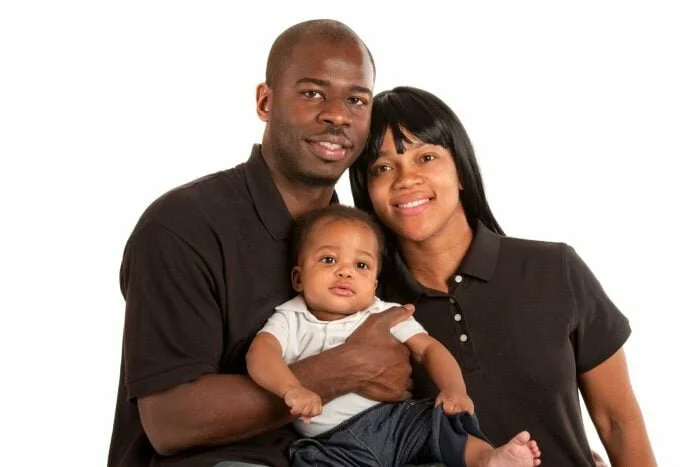If you’re a father and you’re reading this, don’t say, “what’s my business with breastfeeding?” If you don’t have breasts you should at least support breastfeeding.
Your your support of your wife in her breastfeeding journey is one of the single, most important factors that will determine her long term breastfeeding success. In fact, a woman with a supportive spouse is significantly more likely to still be breastfeeding at a year than a woman with a husband who isn’t supporting her. Support doesn’t mean you thinking yeah this (breastfeeding) is a good idea, you should do it.
Tell Us! How long did you breastfeed your baby? Who was the most supportive during your breastfeeding journey?
Posted by Mamalette.com on Monday, December 21, 2015
Some dads actually feel threatened by breastfeeding. The father may feel that the baby has somehow replaced him, that there are no more special cuddles for him, that his wife’s body, her breasts have transformed, from a source of sexual excitement to… something else.
Daddy note that you’re are not being replaced. This is an opportunity for you to step up and be an amazing husband and father; if you do, you will be more important to her than ever. If you focus on being her partner and her unwavering advocate, your relationship (including the romantic part) will almost certainly deepen and blossom.
Here are a set of actions for you to take up if you want to support your wife in breastfeeding your baby.
1.Get educated.
We live in an age whereby all the information you need or want is at your fingertips. If you know nothing about breastfeeding make an effort to learn about it. You can start with some our best tips on breastfeeding here.
Google is also your best friend. The more you know, the more you can help her in the those moments where the baby is screaming, and your wife is crying because the baby won’t latch on.
The last thing you want to feel clueless so make it your job to learn something. Seriously, even if you just google and read for just 15-30 minutes you will be WAY more educated than the average dad.
2. Offer to help her.
Every time she is feeding your baby ask her if you can get her anything. So just ask her if you can get her something to eat, something to drink, something to read. mom will not want to disrupt baby’s sucking to get water, so kindly get her water when she’s breastfeeding please. Thank you.
3. Get the baby and bring him or her to mom
Dads are always angry when they are woken up in the middle of the night by the sound of their crying baby, then they’ll angrily wake up the mom “Didn’t you hear the baby cry?” They’ll shout angrily, then for my mind I’ll be like seriously, is it only the mother that was meant to have sleepless nights? Do us a favour, when you hear the baby cry at any time of the day, get out of bed and take baby to mom and don’t be grumpy about it. If you could bring the baby to us, we could nurse and rest for a long time even in our sleep.
4. Please occupy the older children
Everything is totally fine until I sit down to nurse my baby, that’s when one of them will want to poop, another will need help wearing his clothes while another will want to cuddle. Cuddling is fine but does it have to be now? Then I’ll feel like I’m choked up and I can’t breathe. So if you’ll please get them something to do while I nurse, I’ll be so grateful.
5. Keep on a happy face
Will you please wipe off that “seriously” look you give me when I whip out my breast in public to breastfeed from your face? I’ve been doing this motherhood business for some years now and I admit that when I started back in 2010 I was still seeing my breast as my private part but now? I can breastfeed in a public transport and if my husband was ever embarrassed of me in public that’s past tense now. Support your wife and if she needs to breastfeed in public, instead of being embarrassed, help her cover her boobs with a scarf.
6. If she feels like she can’t do it anymore, support her anyways
I was always complaining about how I would quit breastfeeding soon, but my boo didn’t take me serious. But one day I screamed at him that I can’t continue like this, he asked if that’s what I want and when I said “yes” he accepted. Men support your breastfeeding wife, don’t dictate to her. She knows what’s best for her and if she can’t handle something, give her your support.













